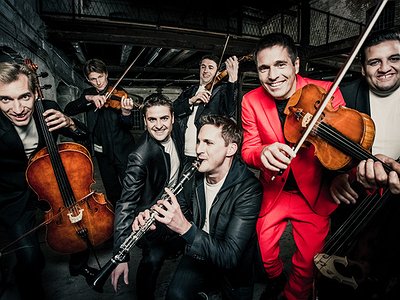Part 2
There are many descriptions of the ideal state of mind for being creative. What is it like for you? What supports this ideal state of mind and what are distractions? Are there strategies to enter into this state more easily?
I honestly don't know a recipe for creativity. For me, when I’m stuck, standing up and going for some fresh air and contact with friends, family and also strangers, is always helpful to make a new start.
How do you make use of technology? In terms of the feedback mechanism between technology and creativity, what do humans excel at, what do machines excel at?
I don't use technical technology at all, except to write down my music on paper, so I’m afraid I cannot answer this question.
Collaborations can take on many forms. What role do they play in your approach and what are your preferred ways of engaging with other creatives through playing together or just talking about ideas?
Definitely through playing! When playing you can go from improvisation to jokes and imitation... etc. There is no limit when you’re collaborating with inspiring musicians.
How is preparing music, playing it live and recording it for an album connected? What do you achieve and draw from each experience personally? How do you see the relationship between improvisation and composition in this regard?
Preparing and composing a piece is like getting pregnant: It gets bigger and bigger until you play it for the first time, which is the birth. The recording is maybe the point where you have to release your baby into the world and to let it live his own life. Improvisation is, for me, an essential part of composing: it is the key that bring new ideas in.
How do you see the relationship between the 'sound' aspects of music and the 'composition' and 'performance' aspects? How do you work with sound and timbre?
The sounds aspects come from the individual players a great deal. If you have fantastic musicians, they add something that you were actually looking for, but could not find. The less you write in the score, the more the player is challenged to activate their own creativity.
Our sense of hearing shares intriguing connections to other senses. From your experience, what are some of the most inspiring overlaps between different senses - and what do they tell us about the way our senses work? What happens to sound at its outermost borders?
That’s a very difficult and philosophical question. I just remember a famous violin player who told his student: “You know, your intonation stinks!“ and the conductor who told an orchestra while they were playing a Mahler Symphony; "This has to taste like blood“ So much for different senses! ;)
Art can be a purpose in its own right, but it can also directly feed back into everyday life, take on a social and political role and lead to more engagement. Can you describe your approach to art and being an artist?
I admire people who devote parts of their creative energy to making a statement on a social and political topic. But I can’t stand those, who are opportunistic and only try to be part of the discussion just to serve their career.
It is remarkable, in a way, that we have arrived in the 21st century with the basic concept of music and performance still intact. Do you have a vision of music and performance, an idea of what they could be beyond their current form?
Thank God that it is still like this because a lot of people know that there is something special which one can get only in a live performance and not on CD, DVD, TV, etc. That’s our uniqueness as musicians. Otherwise we would be already an discontinued item.





